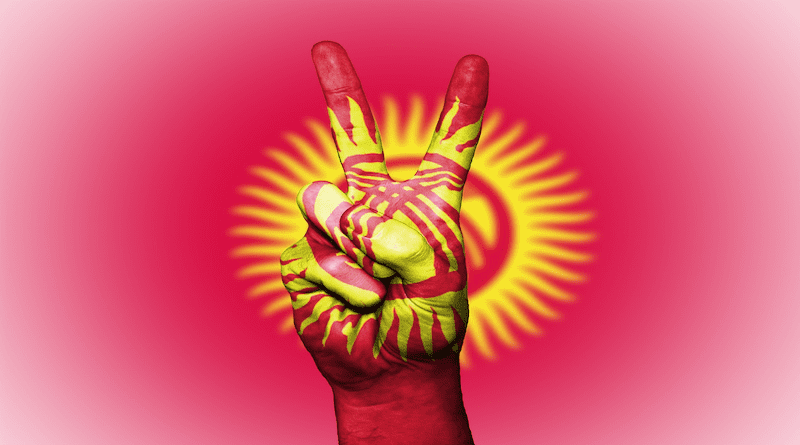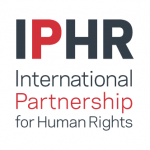
Kyrgyzstan Added To Global Watchlist Due To Rapid Decline In Civic Freedoms – OpEd
By IPHR
The CIVICUS Monitor has added Kyrgyzstan to its watchlist of countries experiencing rapid declines in civic freedoms as the government moves ahead with repressive laws designed to target NGOs and limit freedom of expression.
Two repressive draft laws are currently making their way through parliament. One is a Russian-style “foreign agent” law which, if adopted, would force non-governmental organisations funded from abroad to register as “foreign representatives” if they engage in broadly defined “political activities” and subject them to invasive inspections. The law passed its second reading in Parliament in February. If deputies approve the law in another, final, reading, it will be submitted to the President for signature.
Another proposed bill threatens to expand the government’s control over the media and extend it to blogs and websites, which would further restrict internet freedom in a country where people are increasingly being prosecuted for critical posts on social networks. This bill is currently under consideration at committee level.
Both bills are directly modeled on the laws of Putin’s regime which have been used to devastating effect against Russian civil society and media.
“So-called ‘foreign agent laws’, supposedly introduced for the sake of national security, are a tool we often see authoritarian regimes resort to,” said Tara Petrović, Europe and Central Asia researcher at CIVICUS. “Everywhere we’ve seen these laws implemented, they have led to the mass shutdown of NGOs. When we look at their inevitable consequences, we can see their real goal is the de facto abolition of independent civil society and the suppression of critical voices.”
The latest CIVICUS Monitor Watchlist coincides with the 55th Session of the UN Human Rights Council (26 February to 5 April 2024) and spotlights five countries experiencing a notable decline in civic freedoms. This assessment is made by data compiled by the CIVICUS Monitor in collaboration with research partners worldwide. Alongside Kyrgyzstan, the latest Watchlist also includes Palestine, Pakistan, Senegal, and Venezuela.
The CIVICUS Monitor currently rates Kyrgyzstan’s civic space as “repressed”, the second worst rating a country can receive. Following the country’s downgrade from “obstructed” in December 2023, all the countries in Central Asia are rated either as “repressed” or “closed”.
“Kyrgyzstan still has the opportunity to buck the trend of repression in the region. Instead of increasingly adopting the heavy-handed tactics of its neighbours, it should recognise the invaluable contributions of its vibrant civil society and independent media,” said Petrović.
In the midst of these legislative deliberations, the authorities have stepped up their efforts to suppress freedom of expression, using flimsy legal justifications as a pretext to obstruct the work of independent media and intimidate journalists.
In January 2024, law enforcement raided the offices of two prominent outlets, 24.KG and Temirov Live. As a result of the raids, 24.KG’s office has been sealed pending an investigation into alleged “war propaganda”, and 11 journalists affiliated with Temirov Live remain behind bars on spurious charges of “calls for mass riots”. In February, a court ordered the liquidation of Kloop Media, with government experts called to testify on the “harms” caused to Kyrgyzstani society by the outlet’s “negative reporting”, which they allege include an increase in mental illness and drug addiction.
The situation in Kyrgyzstan underscores the urgent need for reinforced and concerted international action to help protect the country’s civil society. Failure to address these alarming developments could have far-reaching implications – not only for Kyrgyzstan, but for the entire region.
“All of Kyrgyzstan’s international partners – international institutions, governments and funding agencies – must unequivocally condemn the widening crackdown on civic space in the country and put pressure on the authorities to fulfill their obligations to respect freedom of expression and association,” said Brigitte Dufour, director of the Brussels-based International Partnership for Human Rights (IPHR).
She added: ‘’As the EU seeks to strengthen its ties with Kyrgyzstan and other Central Asian countries, it should make it clear that initiatives like the draft law on ‘foreign representatives’ contradict its fundamental values and partnership priorities with Kyrgyzstan and will negatively affect mutual relations if adopted.”

International Partnership for Human Rights (IPHR) is an independent, non-governmental organization founded in 2008. Based in Brussels, IPHR works closely together with civil society groups from different countries to raise human rights concerns at the international level and promote respect for the rights of vulnerable communities.
No comments:
Post a Comment